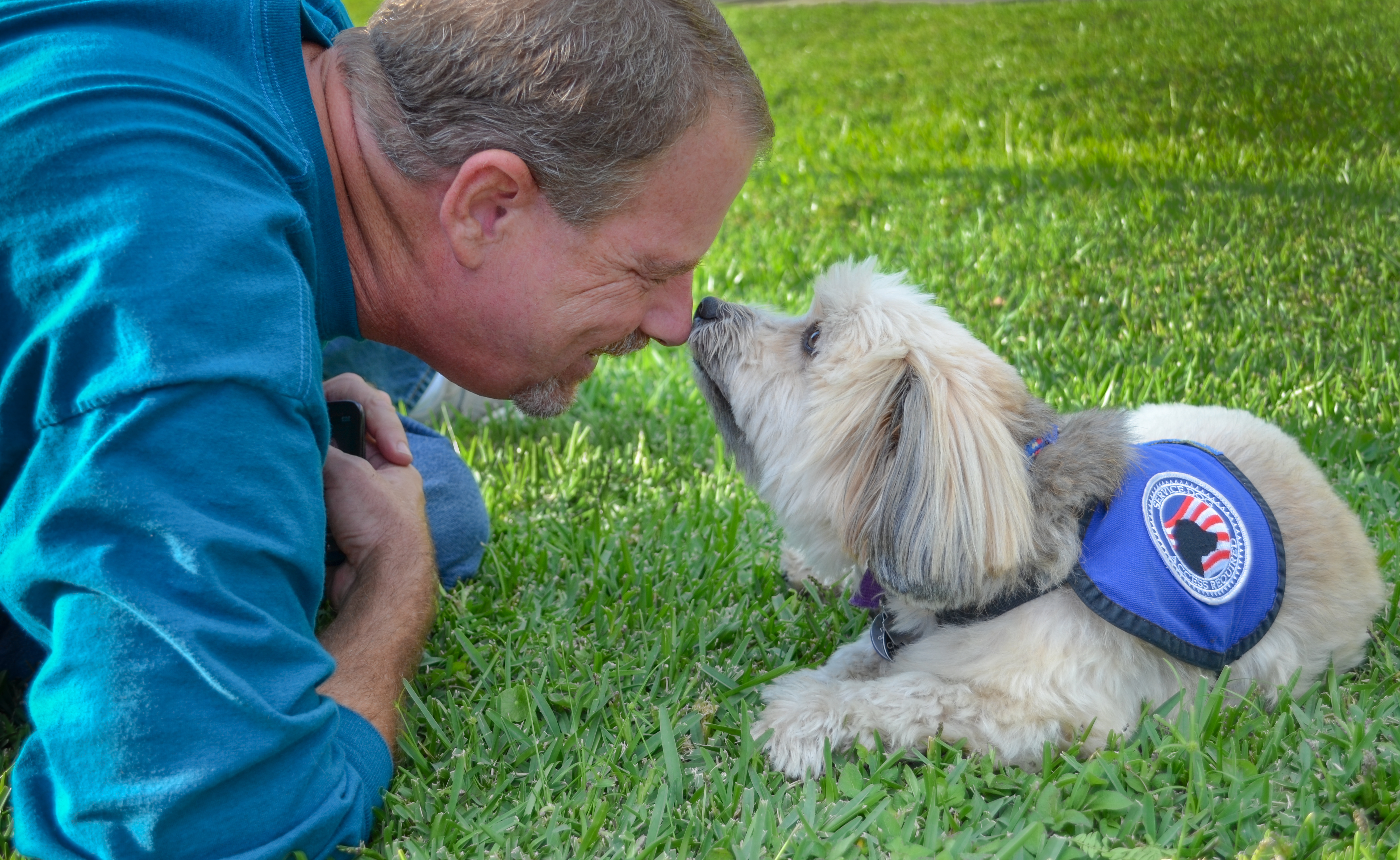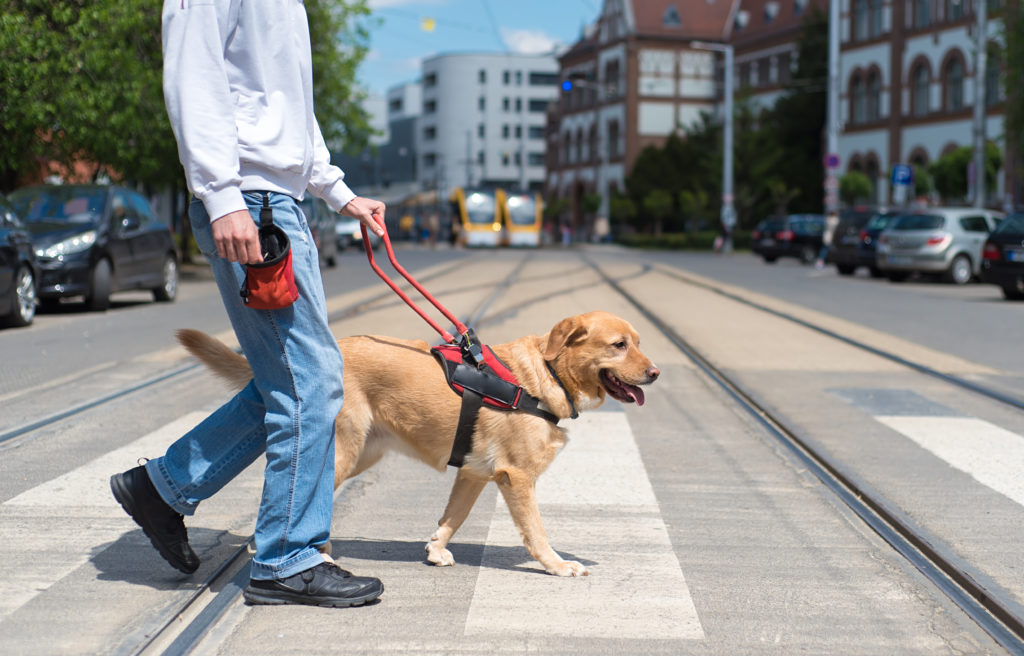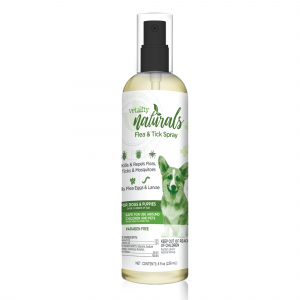Blog
Important Things to Know About Service Dog Teams
By Shanna Stichler with guide dog Diamond
Every day, Diamond and I encounter a lot of people as we go about living life. Most people understand that Diamond is with me to perform a very important job–guiding me safely wherever I need to go. Of course, there is much more to a service dog team than meets the eye, so here are 10 important things Diamond and I want everyone to know about service dogs and their people.
My service dog is working
If you see me and my partner out in public, please remember that she is doing a very important job, even if it may not look like she is working to you. Just like when you’re working, Diamond prefers to stay focused on keeping me safe. Please don’t distract my service dog from her job by yelling at her, using baby talk, barking at her, petting her, touching her equipment, whistling at her, or anything except politely ignoring her.
My service dog is a lifeline
Depending on my disability, my Service Dog may be the only thing standing between me and death. She’s my lifeline and she is the world to me. Please don’t distract her from doing her job or her tasks because my life, health, and peace of mind, rests in her paws. If you distract her and she isn’t able to respond appropriately, my ensuing illness or injury is YOUR fault. Please just ignore her entirely and let her focus on her job, which is keeping me safe.
Service dogs work for all kinds of people
Sometimes, as with guide dogs, it’s obvious why someone is using a service dog. Other times, a handler’s disability may not be readily apparent. We understand that people are curious, but please do not ask anyone why they use a service animal. Service dogs are trained to mitigate any number of disabilities, so prying into anyone’s personal medical history may be hurtful and offensive.
Answering questions isn’t always possible
Most service dog handlers are happy to answer questions about our dogs if we have the time, but we get busy like anyone else, and sometimes, we simply can’t stop to chat. Please understand that, even if we can’t take time to answer all your questions, we appreciate your interest in our dogs.
Service dogs come in all breeds, shapes, and sizes
While Labradors are the most popular breed for service dog work, any dog with the right temperament can do the job. Yes, that even includes small dogs. Therefore, if you see a service dog of an unusual breed, please give the handler the benefit of the doubt. Also, remember that it is illegal to deny a service dog team access to goods and services based on the dog’s breed.

Service dogs are loved
A lot of people assume that life is all work and no play for service dogs, but that couldn’t be further from the truth! Service dogs are incredibly loved, and definitely get time off to enjoy being a dog. Diamond at least gets lots of treats, loves her toys, and enjoys plenty of snuggles. She’s very well cared for, and she’s better off than most pet dogs because she’s well-trained, well-adjusted, and well-socialized.
Service dogs have legal protection in the United States
Allows people with disabilities to bring a trained service dog anywhere the general public is allowed. That includes restaurants, movie theaters, medical facilities, and even schools. The only time a service dog can be excluded from a business is if the dog’s presence would be a health or safety hazard. For instance, service dogs can go to a hospital, but they can’t be in an operating room or any other sterile environment.
No certification is required
There are no papers, documentation, special ID cards, or even specific equipment requirements for a service dog to be in public with her partner. As a matter of fact, it’s actually illegal for anyone to ask a service dog handler to provide these things. Business owners can only ask two questions if they are not sure about a service dog team. They can ask if the dog is a service animal, and what work the dog does for their person. That is all. It is illegal to request private medical documentation or interrogate a handler about his or her disability. Business owners do have the right to ask a service dog to be removed if the dog is aggressive or out of control, and the handler makes no attempt to fix the situation. If a dog is calm, unobtrusive, and well-behaved, there is a very good chance it is a service animal.
Service dogs in training do not have legal protections
While trained service dogs are protected under several US federal laws, service dogs still in training are not covered under these regulations. Several states do have laws allowing people training service dogs the same rights as service dog handlers, so if you plan to bring a service dog in training somewhere with you, check your state laws. If your state doesn’t have provisions for SITS, you will need to contact businesses ahead of time to gain entry.
It takes almost 2 years to train a service dog
Legitimate service dogs receive years of intensive training and socialization. We know that it can be tempting to take your pet in public with you, even if they don’t have this kind of background, but please don’t! First of all, most dogs find the experience highly stressful, which causes them to do things like bark or have accidents inside businesses that are not dog-friendly. This makes things a lot harder for well-trained service dogs that need to be with their person in public. If your dog isn’t a trained service animal, he can only go to places where pets are allowed. Your pet will be a lot happier, trust us!
We realize this article may seem a little preachy, but our goal is to facilitate safe and positive encounters with service dogs and the humans they help. We promise that most service dog handlers are pretty reasonable people. Diamond certainly enjoys meeting her fans! Do you have any questions about service dogs? We’d love to answer them, so feel free to let us know in the comments section!











